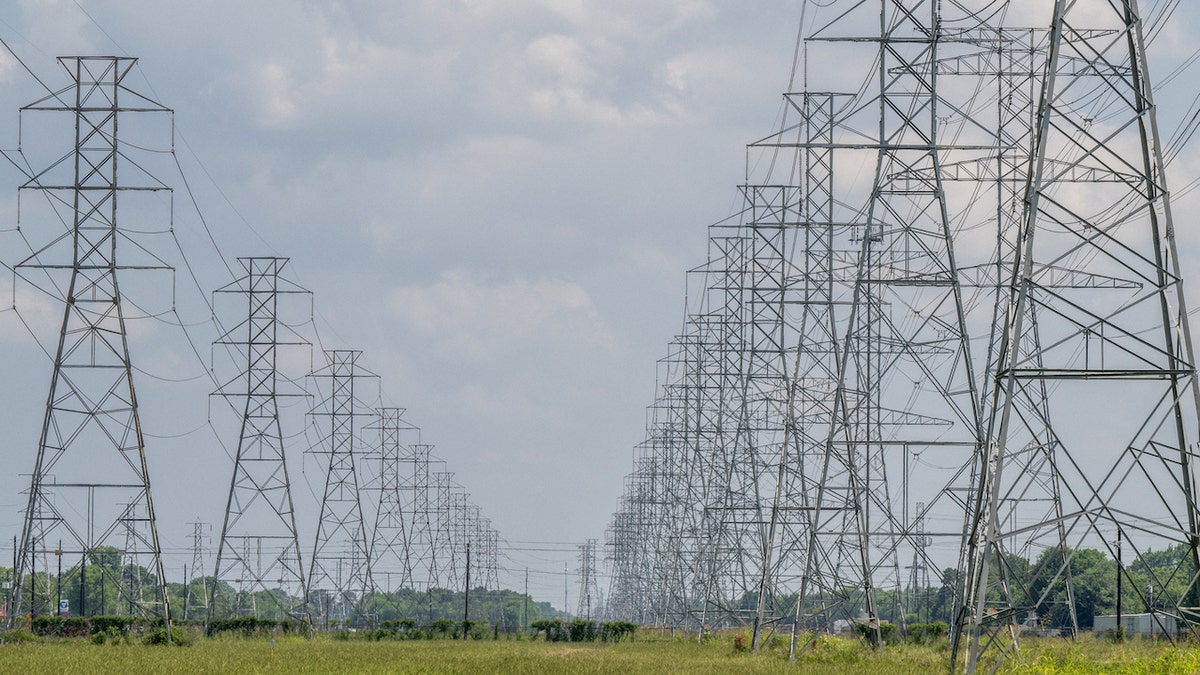Democrat climate policies push our power grid to the limit: Kennedy
‘The Five’ co-hosts discuss how President Biden and his ‘eco-warriors’ are touting the importance of their green agenda even though it could be straining the power grid.
The Biden administration finalized energy efficiency regulations targeting distribution transformers, which are vital for managing the flow of electricity from power stations to consumers.
In an announcement Thursday morning, the Department of Energy said the regulations would help accelerate the development of green energy nationwide and are part of the Biden administration's "commitment to tackling the climate crisis." Overall, the agency projected that requiring more efficient transformers will save utilities and businesses $824 million a year in electricity costs.
"These standards are going to make America's power grid more resilient," Energy Secretary Jennifer Granholm told reporters. "They'll support good-paying, high-quality manufacturing jobs, and they'll help us deploy more affordable and reliable and clean electricity more quickly across the country."
"It's going to provide critical, long-term certainty for domestic manufacturing and production investments — it's going to strengthen energy and economic supply chain security," she continued. "And it'll position American producers and workers to capture an evolving and growing market."
TRUCKERS CHALLENGE BIDEN ADMINISTRATION OVER CLIMATE CRACKDOWN ON ELECTRIC BIG RIGS

Energy Secretary Jennifer Granholm explained that the final regulations represent a pared-back version of her agency's original proposal. (Tom Williams/CQ-Roll Call, Inc via Getty Images)
Granholm also emphasized that the energy efficiency standards will slash nearly 85 million metric tons of carbon dioxide, the equivalent of the combined annual emissions of 11 million U.S. homes.
Under DOE's regulations, energy efficiency gains will be achieved with 75% of the transformers on the market being manufactured with grain-oriented electrical steel (GOES) and another 25% being manufactured with amorphous alloy, a lesser-used electric steel core material. Manufacturers will be given five years to ensure total compliance with the regulations.
FEDERAL COURT STRIKES DOWN BIDEN'S CLIMATE RULE FOR STATES
While the new standards require transformers to be more energy efficient, they also represent a scaled-down version of the regulations DOE first proposed in January 2023.
Under the original plan, 95% of distribution transformers would have been required to be made with amorphous alloy and manufacturers would have three years to comply.
That proposal was widely criticized by power providers and utility companies that characterized it as unrealistic. It also led to bipartisan legislation, introduced in January by Sens. Sherrod Brown, D-Ohio, and Ted Cruz, R-Texas, which would require DOE to issue standards at levels that preserve market opportunities for transformer manufacturers.

Transmission towers are seen at a power plant in Houston on June 9, 2022. (Brandon Bell/Getty Images)
According to Brown, GOES currently accounts for more than 95% of the domestic distribution transformer market and the U.S. has just one small producer of amorphous steel, which relies on foreign materials and has a market share of less than 5%. Therefore, Brown said, rapidly ramping up reliance on amorphous steel could make the U.S. power grid vulnerable.
"The final rule provides stability for most of the market, while affording a more gradual shift toward tighter efficiency standards for transformers used to meet larger commercial and certain electrification loads," Louis Finkel, the senior vice president of government relations for the National Rural Electric Cooperative Association (NRECA), said in a statement.
INTERNATIONAL CODE COUNCIL REJECTS AGGRESSIVE GREEN ENERGY HOME BUILDING CODE MANDATE
Finkel, whose group represents companies that provide service to 42 million residents across 47 states, said the regulations are "much improved" compared to DOE's initial proposal, a plan he said would have "upended the entire market."

Sen. Sherrod Brown, D-Ohio, opposed DOE's original energy efficiency regulations for distribution transformers, which he said are "crucial to our electric grid and our energy independence." (Tom Williams/CQ-Roll Call, Inc via Getty Images)
"The revised rule helps to preserve the availability of both GOES and amorphous steel, and it provides the additional time needed to protect and expand domestic manufacturing capacity," said Scott Aaronson, senior vice president of security and preparedness at Edison Electric Institute. "While this is a positive step forward, electric companies today still are facing unprecedented lead times for transformers."
CLICK HERE TO GET THE FOX NEWS APP
Overall, distribution transformers are an essential component of the power grid, and will be in higher demand as existing infrastructure deteriorates and electricity demand increases with heavier reliance on green energy. The National Renewable Energy Laboratory recently projected distribution transformer installations will need to triple by 2050.
The firm AK Steel is the sole producer of GOES in North America and manufactures the product at a plant in Butler, Pennsylvania. It is then finished at a facility in Zanesville, Ohio.














































